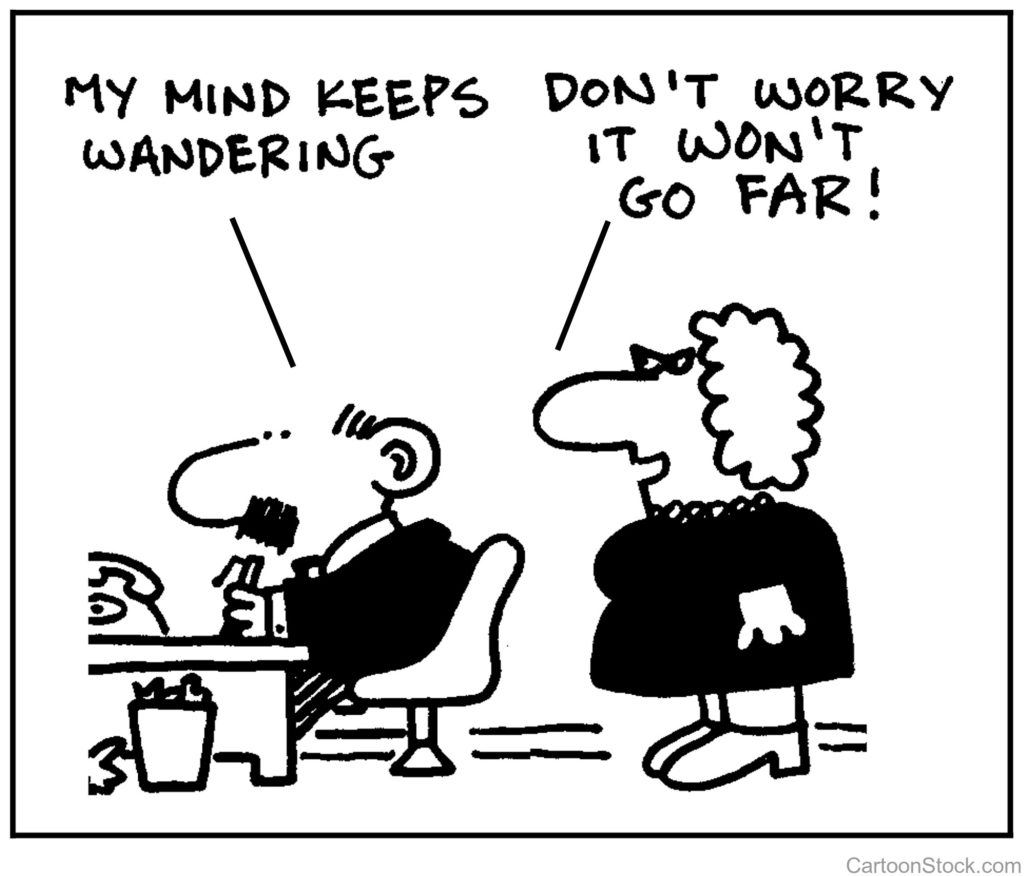 Ninety percent of the time, we live solely with our own thoughts. Sometimes we are entertaining someone else’s thoughts—when we read a book, watch a movie, engage in conversation, or listen to a podcast—but during most of our waking hours, we only hear our own “voice.”
Ninety percent of the time, we live solely with our own thoughts. Sometimes we are entertaining someone else’s thoughts—when we read a book, watch a movie, engage in conversation, or listen to a podcast—but during most of our waking hours, we only hear our own “voice.”
Our thoughts are enormously powerful; they affect and influence our behavior and eventually shape our lives. So let’s develop a disciplined mind.
A disciplined mind is a mind under control. It is structured. It is monitored and regulated. It has boundaries. It is not like an undisciplined dog that gets out of the backyard; it is trained.
A disciplined mind is progressive, it is moving from point A to point B. It’s not like running on a treadmill, expending a lot of energy but going nowhere.
The first step in disciplining your mind is to constantly be aware of what you’re thinking. Think about what you’re thinking. Analyze your thoughts as if you were an editor editing a manuscript. Or, observe your thoughts as if you were another person who has been assigned to monitor and record your thoughts. Only then can we begin to regulate and train our minds; you can’t manage what you don’t know.
One aspect of training my mind that I’ve worked on for several years is: I don’t want to rethink a thought I’ve already had. There is no value in continuing to replay a “tape” that has played before. It takes up “space” in my mind and it wastes time I could otherwise use thinking new thoughts.
Similarly, think about the downside of reading just one book, over and over. The same stories, the same phrases, a singular perspective, nothing new or more developed. That might lead to a mental mortuary and a narrow-minded life. We suffer the same disadvantage when we think the same thoughts over and over again.
Or, imagine being incarcerated with one other person for many years and only hearing his thoughts and stories, over and over again.
I’m trying to train my thought-life to include not thinking thoughts that I’ve thought before.
I allow myself several exceptions:
- If I’m continuing to develop a thought I might allow myself to revisit a previous thought because there might be some overlap between old and new iterations of the thought. But I make sure I’m not just regurgitating old impressions.
- If a thought gives me pleasure I may rethink it. For instance, if I have a fond thought about spending time with my grandson, Benjamin, I will allow myself to replay that tape because it gives me joy.
- Sometimes I may need to be reminded of a principle or truth, or may need to share the thought with someone else. Professionals are required to do this often.
But given these exceptions, we should continually feed our minds with new thoughts. This is one of the joys and benefits of reading: we get to think another person’s thoughts. Also, when we engage in conversation with intellectually fresh people we encounter new thoughts.
We should avoid replaying mental tapes that coddle unhealthy messages which can produce mental and emotional unhealth (anxiety, suspicion, paranoia, insecurity, pride).
[reminder]What are your thoughts about this essay?[/reminder]

Don, I’ve loved for years the saying: “Don’t believe everything you think.” For me, that means filtering my thoughts—even those I’ve had for years—through the grid of Scripture. Meditating on the truths of Scripture seems to fit in your third exception. Thanks, as always, for making me think.
Wayne, I love that statement, “Don’t believe everything you think.” Thanks for sharing your good thoughts and for our friendship. Don